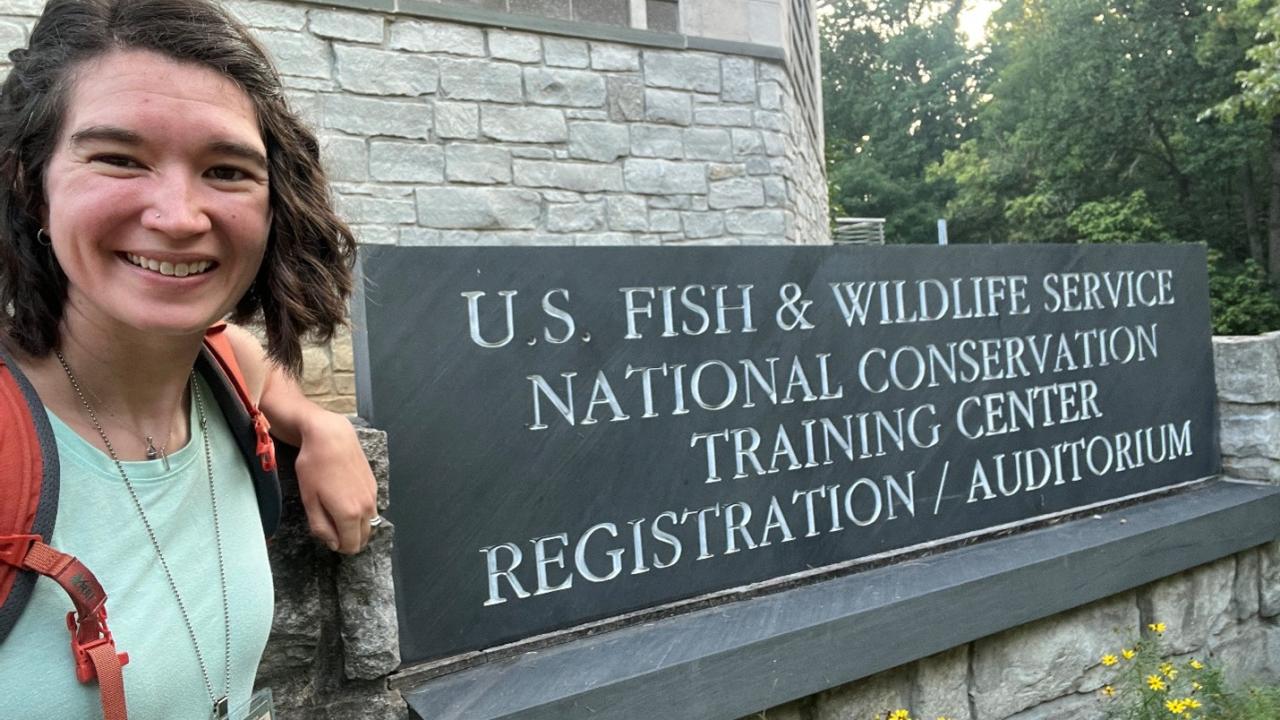
In the Wild: Amanda Specht with the US Fish and Wildlife Service
Quick Summary
- Amanda completed her Practicum with the US Fish and Wildlife Service in the Pacific Southwest Regional Office working as the Regional Recovery Permit Biologist.
My name is Amanda Specht and I am a recent graduate of the Environmental Policy and Management (EPM) graduate program at UC Davis. Prior to this program, I graduated from the University of Puget Sound in 2017 with a B.S. in Biology and minor in Environmental Policy and Decision Making. Next, I interned with Marine Conservation Institute’s policy office in Washington, D.C., advocating for marine protected areas and ocean conservation. After that, I worked as zookeeper for almost 6 years in Atlanta, GA, and San Francisco, CA. I came to the EPM program to learn more skills that I needed to switch to a career in Environmental Policy and focused my studies in the areas of Conservation Management and Marine Resource Management. I hope to work in public service either at the Federal or State level after I graduate.
I completed my practicum with the U.S. Fish and Wildlife Service (Service) in the Pacific Southwest Regional Office based in Sacramento, CA. This opportunity was part of the Pathways for Students and Recent Graduates Program to Federal Careers. I worked as the Regional Recovery Permit Biologist within the Ecological Services Program of the Service. I
coordinated with partners, scientists, and other interested parties to issue permits and ensure compliance with Section 10 of the Endangered Species Act (16 U.S.C. 1531-1544). I was able to provide a fresh perspective coming into the Recovery Permits Program as both a master’s student and someone new to working for the Service. My fresh perspective allowed me to be
able to identify parts of the permitting process that could be improved and made more efficient, which is something that my leadership had identified as a priority. My project was to both learn how the program was currently running, carry out essential duties for the Recovery Permits Program, and recommend changes to improve efficiency to allow permits to be issued
faster. Several of my recommendations have been considered among a main list of other ideas and will be implemented in the coming months.
During the past several months I have learned to conduct work that is based on regulations and statute, to process applications in the Service’s ePermits program, and to draft and issue 10(a)(1)(A) or “recovery” permits. Additionally, I had unique opportunities to collaborate with biologists from all over the Pacific Southwest Region, other regions, and leadership on ideas to enhance the Recovery Permits Program. It has helped me learn about what it is to be a civil servant in the Federal government, to grow my policy communication skills when talking to the public, and to foster confidence in developing other skills. The overall benefit from my work was to know that I have contributed to a program that aids in the recovery of threatened and endangered species by permitting scientists and partners of the Service to do such recovery work. By improving the permit processing, the Service can issue permits faster to make sure that good work continues. I am grateful that I have had the opportunity to learn from so many people as I start my new career in public service and plan to carry what I’ve learned forward.
